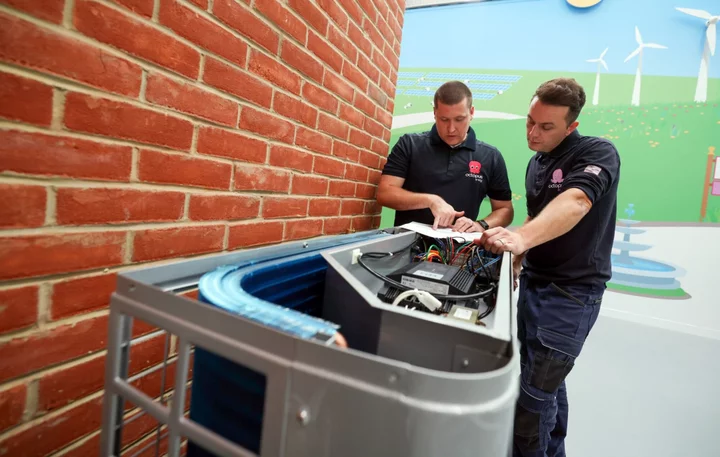Moving half of the funds spent on subsidies for fossil fuel heating to heat pumps could transition all European home heating to renewable methods by 2040, a new analysis suggests.
Heat pumps are cheaper to run than fossil fuel boilers in almost all EU countries, according to a report from the European Environmental Bureau, an international network of environmental organizations. But in many places, the upfront costs make them unaffordable for middle-income households. Gas, coal and oil heating, meanwhile, are still subsidized by many European countries.
Some €3.2 billion ($3.4 billion) was spent by EU countries on funds for domestic fossil fuel heating in 2022, a previous EEB analysis found. Investing in heat pump subsidies that allow all European households to recover the upfront costs within seven years would cost €21.3 billion over 15 years — €1.4 billion on an annualized basis. That falls to €14 billion over 15 years if a carbon tax of €100 per tonne of carbon is introduced, the EEB estimates.
Heat pumps have been at the center of the debate about climate policy in Europe. A highly efficient electric heat source, they are already fitted in over half of households in Norway and more than 40% in Sweden and Finland. Other countries have climate-based targets for rolling them out as a replacement for gas and oil-fired heating. But recent anxiety about the cost of living has led some countries, including Germany and the UK, to moderate the pace of their plans to phase out fossil fuel heating.
Read more: What Is a Heat Pump and Are They Expensive? All You Need to Know
The cost of running an air-source heat pump is lower compared to gas or oil heating in every EU country apart from Belgium, according to the EEB report. But in some countries, including Bulgaria and Lithuania, it takes decades to generate enough savings to pay back the upfront costs — longer than the lifetime of the heat pump.
For some countries, that upfront cost is particularly high relative to the average income. In Romania and Bulgaria, for example, the average family would need to spend around a year’s earnings on a heat pump, compared with three months’ earnings on a gas boiler.
The report does not consider other factors slowing adoption, including a lack of skilled installers and low acceptance of the technology in some countries.
“The EU and its member states must put an end to the old fossil technologies and shift funds towards alternatives like heat pumps, solar energy and district heating, offering a more affordable and sustainable reality for vulnerable households,” said Davide Sabbadin, deputy policy manager for climate at the EEB.

